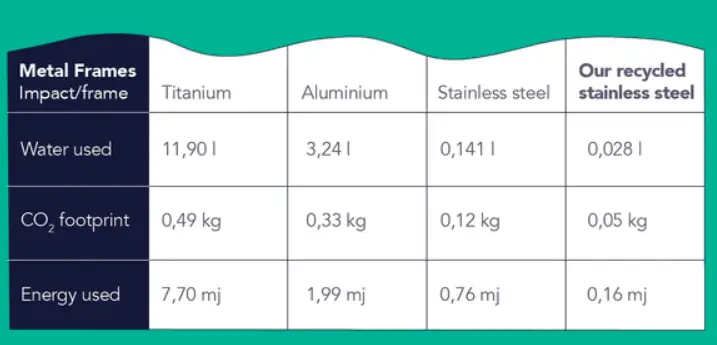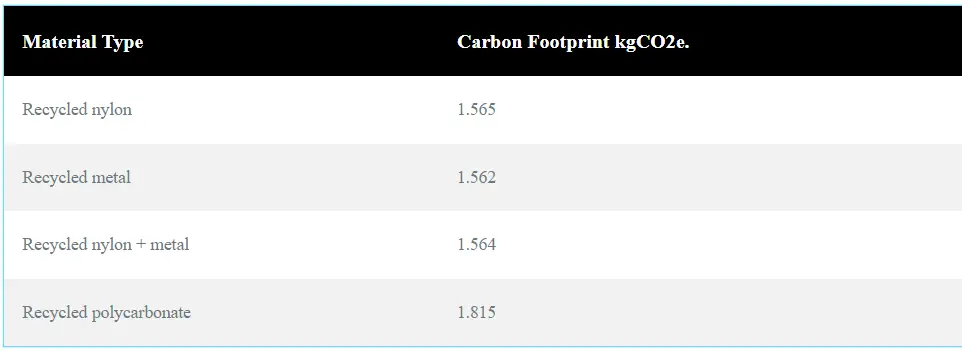Recycled Metal Sunglasses - From Waste to Wearable

What types of metals are used in recycled metal sunglasses?
- recycled stainless steel and
- recycled aluminium alloys
Are recycled metal sunglasses sustainable?


- Energy savings of 75%
- Savings in virgin materials use 90%
- Reduction in air pollution 86%
- Reduction in water use by 40%
- Reduction in water pollution 76%
- Reduction in mining wastes 97%
- Reduction in consumer waste 105%
- Recycling aluminium uses 95% less energy than producing aluminium from raw materials.
- It also saves 97% of greenhouse gas emissions produced in the primary production process.
- Recycling 1 tonne of aluminium saves 9 tonnes of CO2 emissions and 4 tonnes of bauxite – the raw material from which aluminium is made. 1 tonne of CO2 is equivalent to driving over 3,500 miles.
- Making aluminium cans from recycled metal is 20 times more energy efficient than using primary material (i.e made from raw materials)
- Metal is a permanently available resource. It is 100 per cent recyclable, forever, so carbon savings increase every time it passes through the recycling loop.
- Avoiding the devastating impacts of mining which can include the destruction of delicate natural habitats
- Prevention of toxic runoff associated with mining activity that affects surrounding waterways, long after mines have been shut shown
- Reduction of air pollution (via a reduction in greenhouse gases). The Institute of Scrap Recycling Industries (ISRI) reports that recycling metal may cut greenhouse gas emissions by 300 million to 500 million tons.
- Positive impacts of diverting waste from landfill
Where can I buy recycled metal sunglasses?
- Parafina recycled aluminium sunglasses https://parafina.eco/en/store/ecofriendly-sunglasses/recycled-metal-ecofriendly-sunglasses/
- Proof recycled aluminium sunglasses https://www.iwantproof.com/collections/aluminum-collection
After more information? You may be interested in....
Don’t Throw Them Away – Practical Uses for Your Old Glasses – if you have old eyewear, don’t trash it! Explore this guide, which covers options to repair, reuse and recycle glasses.
Sustainable Sunglasses – Know What to Look Out For – learn about the different options available to make your sunglass purchase a sustainable one.
9 Sustainable Sunglass Brands Worth Checking Out – for a list of Australian brands making sunglasses from sustainable materials and a summary of the pros and cons of each.
Sustainable Choices for Your Eyewear – Your Options Covered – for information on reusing old frames and lenses and where to get glasses second-hand.
Replacing New Lenses in Your Old Frames – Is it Worth it? – for further information about getting new lenses into your existing frames, in particular, how much this will cost
7 Sustainable Eyewear Brands Worth Checking Out – for a list of Australian brands making prescription glasses from sustainable materials.
Plant-Based Sunglasses – What Are They Made From Really? – read this if you want to know what “plant-based” sunglasses really mean and what makes them a sustainable option.
A Close Look At Bamboo Sunglasses – Sustainable or Not? – for a great overview of bamboo as a material source, allowing you to judge whether it is a sustainable option or not.




